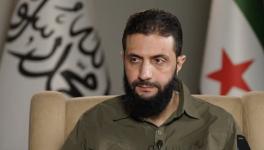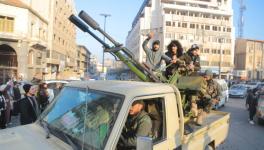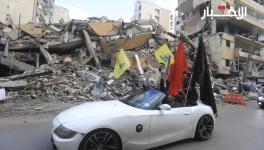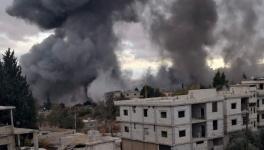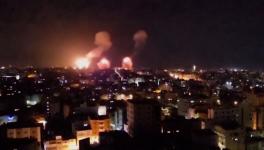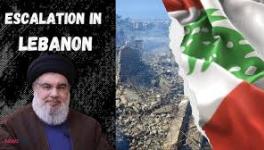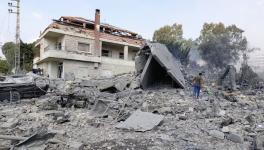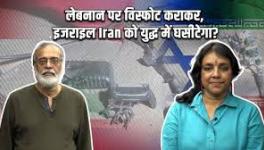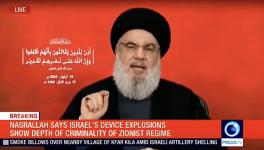Lebanon: Voters Cling to Hopes Election Can Deliver Change
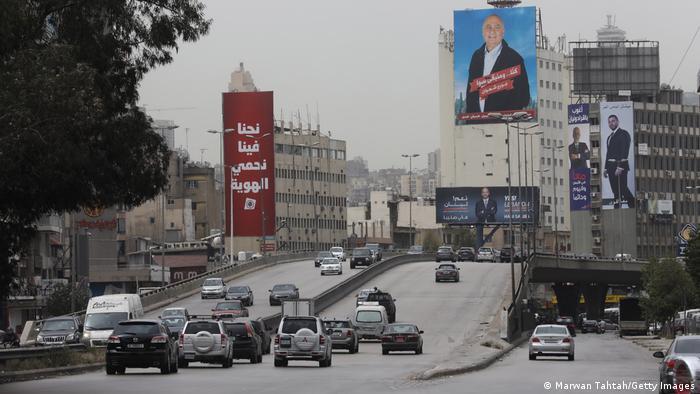
While the country is full of posters and billboards, the population is only cautiously positive
Lebanon's adult population will elect a new parliament on May 15 — the first parliamentary election since the Beirut port blast.
The devastating explosion destroyed whole neighborhoods and killed hundreds of people on August 4, 2020.
"This election is extremely important to us," Amal Nassereddine told DW. The 38-year-old doctor admits that until now, she has always cast a blank ballot. "It was clear each time the corrupt political elite would win again," she said.
This time, however, she is harboring real hope.
Nassereddine and her family live 20 minutes south of Lebanon's capital Beirut. Although she holds both an American and a Lebanese passport, there is no talk of her leaving her home country.
Yet, at the same time, she would love to live in a country where it is possible to buy food, receive medical assistance and tank up on gas.
In her eyes, the established political classes and their supporters have been exploiting the country for decades.
As a consequence, the country is on the verge of an economic breakdown, and propping it up has virtually become mission impossible.
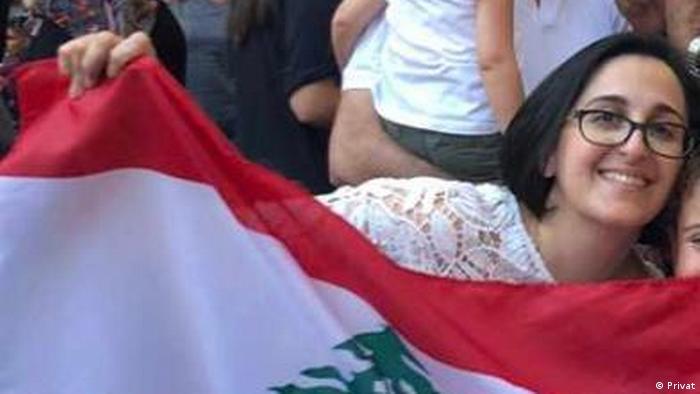
Amal Nassereddine wants to stay in Lebanon, but wishes for basic goods and infrastructure
Revolution enters a new phase?
Bahaa Dalal is more than willing to step up to the challenge. "I am running for election because I feel it's my duty and it is an ethical necessity to do," he explained.
He is fully aware of the scope ahead: social, economic, educational, and health-related problems have to be addressed, as well as the fallout from the coronavirus pandemic.
For the upcoming parliamentary election, Dalal has joined the oppositional list of the eastern constituency of Rashaya and West Bekaa along with other independent campaigners.
Back in 2019, when people took to the streets on October 17, Dalal was one of those protesting against the government.
"I am now running for election to continue the journey of the October 17 revolution," he said, adding that his purpose is "to defend people's rights and help put an end to their suffering; to achieve social justice and human dignity, which have become lost in our country."
As well as being a full-time teacher, Bahaa Dalal has been campaigning for months. He is convinced that the Lebanese population not only needs change, but is also ready for it.
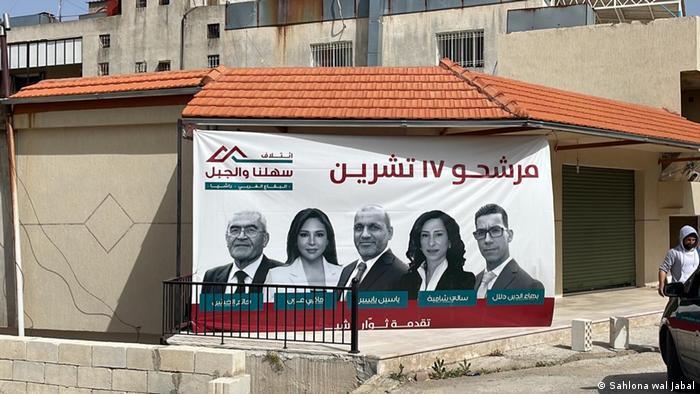
Bahaa Dalal (right on the billboard) has joined the Sahlona wal Jabal list — founded after the October 2019 revolution
Crises run at a fast clip
Few question that the current crisis and the Lebanese political elite's dismal record are down to mismanagement and corruption.
As a result, the country is stuck in a devastating economic loop. The currency has depreciated by 90%, producing hyperinflation and dire shortages of fuel, medicine and other essential goods.
Electricity is almost non-existent, with the country's mobile networks and internet in danger of imminent collapse.
Furthermore, the war in Ukraine is threatening to worsen the hunger crisis, since Lebanon used to import up to 80% of wheat from Ukraine and Russia.
"The government isn't keeping pace with their obligations," says Anna Fleischer, head of the Heinrich Böll Foundation's office in Beirut. Currently, not even passports can be issued anymore. The reason: a lack of new, blank documents.
Meanwhile, those in power have been trying hard to protect those responsible for the port blast. The explosion in August 2020 was one of the largest non-nuclear explosions in human history. But then, Lebanon has long been known for its culture of impunity.
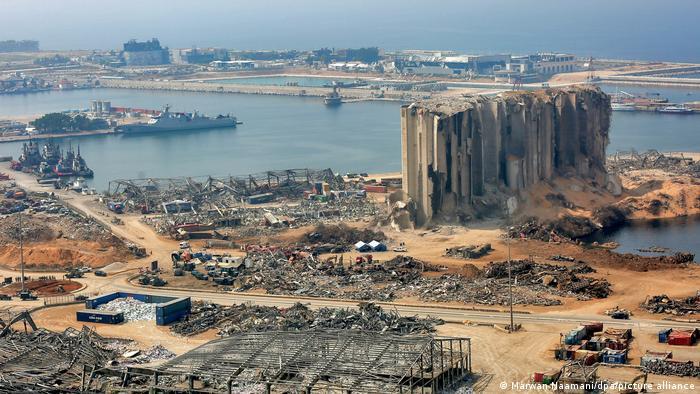
The ruined silos have become an enduring symbol of the port blast in August 2020
Traditional parties are running — the former PM isn't
National and international election observers long thought this year's parliamentary election would be cancelled.
Before the last elections in 2018, the parliament had effectively postponed elections for years.
"The fact that the elections are nevertheless taking place is significant and can be considered a litmus test for Lebanon's democratic processes," Fleischer said.
A total of 128 parliamentary seats are up for grabs. All of the traditional parties are running with their familiar leaders, including the Free Patriotic Movement, Amal, Hezbollah, the Lebanese Forces and the Progressive Socialist Party of the Druze.
Former Prime Minister Saad Hariri, however, is no longer on the list.
Once the leading face of the Sunnis in Lebanon, retiree Hariri has plunged his faith community into chaos; even if some candidates run on behalf of the Sunnis, Hariri's retirement will inevitably lead to new alliances.
Since 1943, Lebanon has adhered to a system of power distribution that seeks to represent the various religious factions of the country.
Back then, the sectarian groups agreed to divide state offices and parliamentary seats according to a system of religious proportional representation, namely, the prime minister had to be a Sunni, the president a Christian and the speaker of parliament a Shiite Muslim.
EU observes the election
For the first time, Sunday's election is set to reveal the population's true level of support for new factions and candidates who do not herald from the traditional parties.
Following the uprising in 2019, new names emerged on the political landscape, like Khat Ahmar (Red Line), People's Anti-Corruption Observatory, Shamaluna (Our North), as well as Sahlona wal Jabal (Lowlands and Mountains) — the independent list to which candidate Bahaa Dalal belongs.
"It is important to break the circle of politicians who inherit their power and seats from their ancestors, and to work towards a civilized country without discrimination and sectarianism," Dalal said.
Get to know the #EUEOMLebanon22 (8)#Lebanon #Election2022 pic.twitter.com/4LdGDkbU5D
— EU EOM Lebanon Elections 2022 (@eueomlebanon22) April 27, 2022
Ammar Aboud, an election expert and founder of the Lebanese Association for Democratic Election (LADE), believes "this is the only way forward to introduce change." It is also a chance to show how much support the ruling parties have forfeited.
Despite this, Aboud knows there is still room for manipulation. He is convinced the recent series of crises has made it easier to buy votes.
The coffers of the traditional parties are full and some of them expect support from abroad. Only recently, Saudi Arabia's ambassador returned to Beirut after months of tension. Some see his return as sending a message to Hezbollah, which is supported by Saudi Arabia's arch-enemy Iran.
"In my opinion, the return of the Saudi ambassador signals that Saudi Arabia isn't completely withdrawing from Lebanon," Fleischer said. It is no secret that Saudi Arabia is set to support Lebanon financially as well.
While Lebanon does have an election monitoring commission, it suffers from chronic underfunding, like many other institutions in the country.
The EU is therefore sending its own team of election observers to Lebanon, as it did in 2018.
Josep Borrell, the EU's foreign affairs representative, stated that the EU is also providing financial and technical assistance in the run-up to the elections. The aim is to strengthen democratic development and reform in Lebanon.
Thank you to 244442 expats for answering the call. #yallaregister #yallavote pic.twitter.com/t3g0ThrWto
— The Lebanese Diaspora Network (@TLDNet) November 20, 2021
The mission is headed by the Hungarian Christian Democrat Gyoergy Hoelvenyi, a member of the EU Parliament's Department of Human Rights.
Little prospect of structural change
In contrast to the colourful posters and billboards in the country, the Lebanese people are far from optimistic about the election. The majority are tired; exhausted by everyday life and the crisis.
Things haven't become any easier since 2018. Following the October 2019 protests, the opposition split into many different groups.
"They didn't manage to form joint lists," says Anna Fleischer of the Böll Foundation. "The likelihood of actual structural change is very low."
Despite this, people are hoping that as many oppositional candidates as possible will be able to gain a seat in parliament.
"There are many hidden votes for the opposition from people who openly declare affiliation with the present regime, and there are many previous non-voters who are going to vote this year," Amal Nassereddine explained.
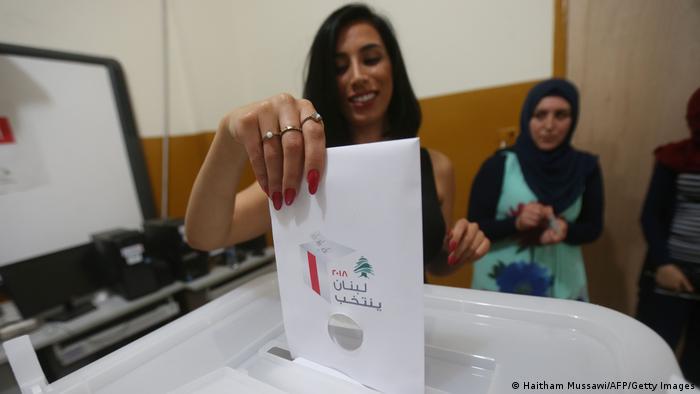
Expectations are high that many will vote for independent, new names on the electoral lists in mid-May 2022
According to Ammar Aboud, many Lebanese abroad also vote for the opposition.
The Lebanese Diaspora Network and the Lebanese Ministry of Interior confirm this assessment. Some 244,000 Lebanese abroad have registered for the election. In total, around 4 million people are eligible to vote.
Amal Nassereddine remains optimistic, despite knowing that difficult times lie ahead. "Nothing is impossible."
What she wants is for one good thing to lead to another. "If people see hope in these elections, then maybe the rest will begin to change slowly, too. We just have to be patient."
This article was adapted by Jennifer Holleis and edited by Lucy James.
Get the latest reports & analysis with people's perspective on Protests, movements & deep analytical videos, discussions of the current affairs in your Telegram app. Subscribe to NewsClick's Telegram channel & get Real-Time updates on stories, as they get published on our website.









